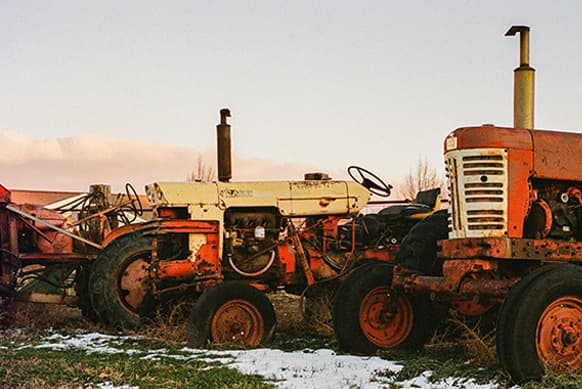Tractor Tire Recycling
Tractor Tire Recycling
Despite the downturn in many sectors of the economy in years past, farmers always keep busy growing food to feed our nation. This steady work has maintained a constant demand for tractor tires within the United States. However, in developing countries, this demand is increasing. In 2016, the Global Agriculture Tractor Tires Market Strategic Assessment and Forecast estimated that the need for these large tires would grow at a rate of 5.06% between 2016 and 2022. While good for the economy, the growing sales of new tires will inevitably lead to a rising number of waste tires, which are challenging to dispose of properly.
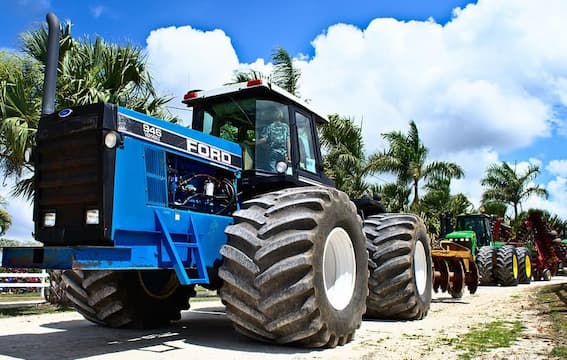
Tractor Tire Recycling Problems
Not all tires are created equal. The recycling of passenger car and light truck tires is standard in most areas of the country. For a small disposal fee, most tire shops will handle the job for you. Unfortunately, tractor tires are a different story.
- Tractor Tire Sizes
Agricultural tractor tires are available in a wide range of sizes to fit a wide array of equipment, from tires that fit 20-inch wheels to extra-large ones made for mounting on 46-inch wheels. Their large size and extra-thick rubber make these tires much heavier than their passenger car counterparts. Weighing hundreds of pounds each and occupying a large amount of space, tractor tires are difficult to load and transport. - Tractor Tire Composition
Because of the heavy work that tractor tires do, they are manufactured differently from other tires. While all tires contain at least a small amount of metal that must be removed during the recycling process, these heavy-duty tires contain much more. This extra metal lends more strength to the tire and helps it to maintain its shape under the weight of heavy equipment and loads. Unfortunately, the additional metal and tough rubber in these tires can cause excess wear on recycling equipment, making the process more challenging with the potential to increase downtime as blades are sharpened, and repairs are made. - Tractor Tire Location/Distance
Tractor tires, mining tires, and other large tires spend most of their working lives off the beaten path on farms and remote work sites. Located some distance from the nearest recycler capable of tractor tire shredding, farmers may be tempted to find an alternative method to dispose of the waste rubber. However, illegal tire dumping or burning creates environmental contamination problems down the road. - Tractor Tire Recycling Cost Barriers
For farmers, it can be challenging to identify an eco-friendly or even a legal way to dispose of waste tractor tires locally. Many landfills do not accept tires. Those who accept tires usually restrict the number and size of the tires they will take, excluding larger tractor tire sizes.Individuals and organizations that will take large tractor tires frequently do so at a cost to the customer based on the tire’s weight. It can cost hundreds of dollars per ton to dispose of tractor tires. Farmers may even need to apply for a license to haul more than five tires per year in some areas. Farming is not a highly lucrative career, and these costs may be a significant barrier to properly recycling tires.
Recycling Equipment
Start here to discover ECO Green’s competitive advantages
for your country and market.
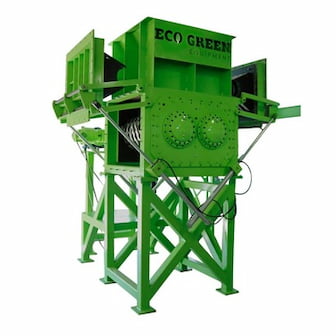
ECO Green Giant
Looking for the latest technology in tire shredding? The Eco Green Giant cuts…
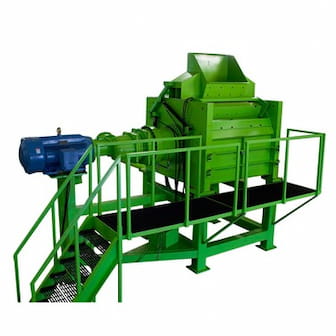
ECO Grater
The ECO Grater features a revolutionary operating design to reduce heat, wear…

ECO Granulator
This industry standard machine provides reliability and operational savings for…
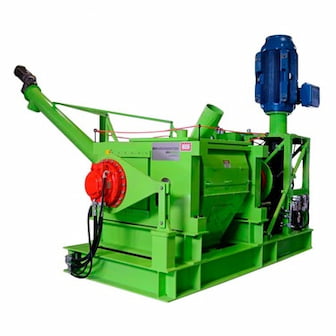
ECO Krumbuster®
The Krumbuster is the leading Mill in the industry. It has the highest capacity and…
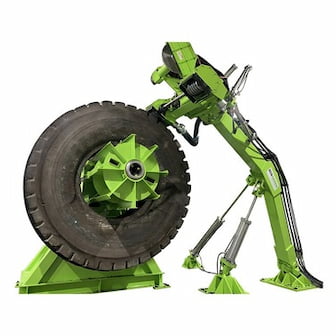
Eco Razor 63
The Eco Razor 63 is the ultimate in high quality rubber removal and preparation…
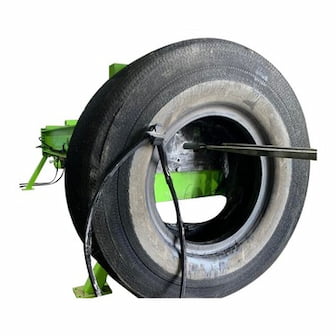
Eco Extractor 63
The Eco Extractor 63 is designed to remove steel beads from the largest…
Tire Shredder Products
Recycling Tractor Tires Benefits us All
In 2019, Cecil County in Maryland held a 10-day tractor tire recycling event, waiving fees and tire transportation regulations for farms hoping to recycle their waste tire stockpiles. With the participation of 73 farms, Maryland authorities collected over 14,000 tires weighing in at over 379 tons. While it is hard to determine how many tractor tires are dotting the landscape awaiting their turn to be recycled, it is clear from recycling efforts that there is a growing problem that needs addressing.
Overcoming the barriers to recycling tractor tires needs to be a priority for everyone, as dumping and stock-piling affect our environment and our health. When it becomes too costly and too complicated for farmers and ranchers to recycle their waste tires, they often find alternatives. Some have creatively sold old tires as workout equipment, erosion retention material, or feed troughs for animals. Sadly, others resort to illegal dumping, or worse, burning to get rid of old tires.
Piles of waste tires become a breeding ground for pests, a source of ground pollution, and a problem for local government agencies to clean up. Burning tires releases heavy metals such as mercury along with a host of other toxic chemicals into the air. As tires burn at sustained temperatures above 400˚F, these fires are difficult and costly to extinguish. The environmental impact and cost resulting from improper tire disposal come out of taxpayers’ pockets and defer monies away from other essential programs.
The Right Tractor Tire Recycling Equipment
Waste tire recyclers have made a significant difference in the past few decades to the way that we deal with rubber waste—turning whole tires into rubber mulch, tire-derived fuel, rubberized asphalt, and many other products. However, recycling tough tractor, mining, and construction tires requires the right equipment for the job. A tractor tire shredder must be able to slice cleanly through the thicker, tougher rubber on these large tires efficiently without burning out the motor or dulling the blades. Downtime at a rubber recycling facility quickly eats into the profitability of the plant.
The recycling equipment we make at Eco Green Equipment is designed to perform the most demanding jobs that you can throw at it efficiently; without missing a beat. Our specialized equipment provides tire recyclers with all the tools necessary for shredding and screening recycled tractor tire waste to produce useful landscaping, engineering, and fuel end products. We work to make a difference globally by making it easier for individuals and businesses to recycle their rubber waste and keep it out of our landfills.


